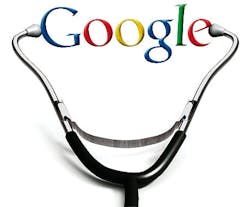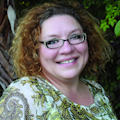You all know him, right? Dr. Google? The layman’s immediate pseudo-guide to all things wrong with your body, mind, and soul?
Pain in abdomen? IBS. Missed period? Ovarian cancer. Forgetfulness? Alzheimer’s. Headache? Tumor.
Finally, after endless hours of researching your symptoms—filling your head with potential worst-case scenarios— you close out, frustrated and defeated.
Healthcare-educated consumers know that not all information on the web is reliable, yet we worry, anyway, wallowing in our internet-based findings and inevitable pessimistic diagnoses.
Ironically, research has shown that searching for online health information has had a positive impact on the doctor–patient relationship, particularly for patients with greater e-health literacy. At least I’ve got that going for me.
At 16 years of age I lost an ovary and fallopian tube. The remaining set has served me well over that past 31 years. However, now at 47 years, my residual ovary is looking “suspicious.” Although I’m currently in counsel with my GYN, with a reassessment scheduled in 6-12 months, my best options appear to be (1) having the remaining ovary removed or (2) have everything removed, aka hysterectomy.
Having never “studied” this subject matter before, I quickly made another appointment with Dr. Google.
The natural age for menopause is 51. Removing my (remaining) ovary will result in surgical menopause. Menopause brings hot flashes, vaginal dryness, depression, anxiety, heart disease, memory problems, decreased sex drive, osteoporosis—and even premature death. My brain registers: MORE HEALTH PROBLEMS.
Taking low doses of hormone replacement drugs after surgery, and until about age 50, may reduce the risk of these complications. Women who have no ovaries need both estrogen and progestin. But hormone replacement therapy has risks of its own. My brain registers: MORE DR. GOOGLE NEEDED.
And the cycle continues.
I’ve at least six months until I need to make a decision. I’ve time to research. To get more lab tests. To get a second opinion. To accept that my female body is aging, changing.
And I worry.

